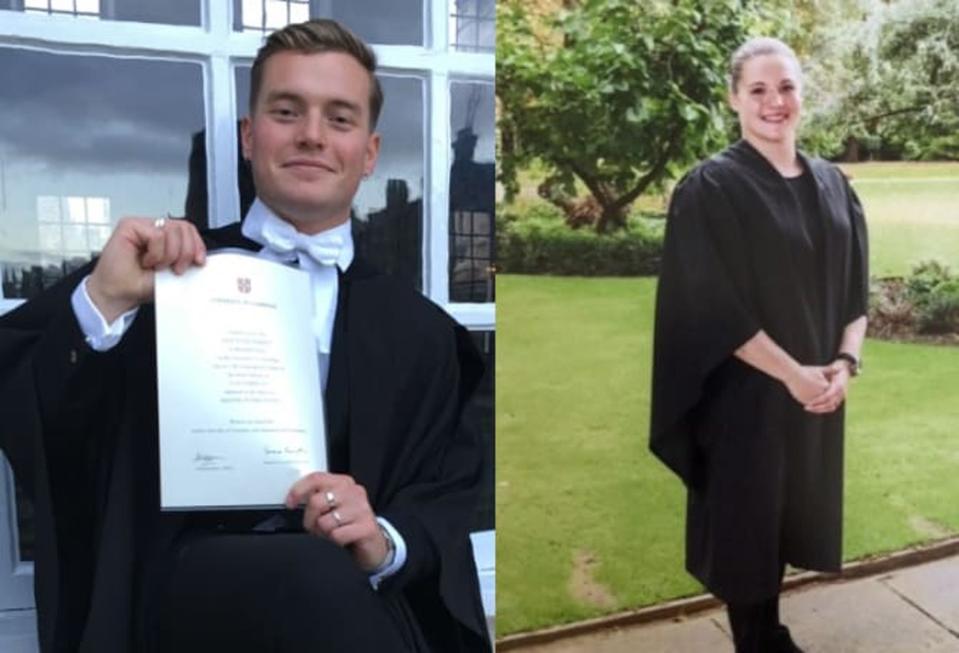MI5 upgraded Fishmongers’ Hall terrorist’s threat level over ‘planned attack’ but did not tell his probation officer, inquest hears

Usman Khan, 28, makes a ‘thank-you’ message for a Learning Together event in March 2019
(Metropolitan Police/ PA)MI5 upgraded a terrorist’s threat level because of evidence he was planning an attack but did not tell the probation officer charged with regulating his activities, inquests have heard.
Usman Khan murdered two people in a knife rampage at Fishmongers’ Hall in London in November 2019, 11 months after he was freed from prison.
He had been jailed for preparing acts of terrorism and was known to have radicalised other prisoners, associated with fellow terrorists and been involved in violence.
Inquests into his two victims’ deaths heard that in the month of his release, December 2018, MI5 upgraded the priority level assigned to Khan after receiving intelligence that he may be planning a post-release attack.
His level was changed from four to three, which denotes further action required to determine whether he posed a threat.
Kenneth Skelton, who was the probation officer responsible for managing Khan after his release, said he was not told of the change or the intelligence about attack planning.
He said that if he had, “the whole management process would have been altered”, potentially including the decision to let Khan attend the prison rehabilitation event where he launched the attack.
In the period between Khan’s release and the rampage, he was the subject of 30 multi-agency “Mappa” meetings involving police and probation, the inquests heard.
The panel was charged with sharing information on the threat posed by Khan and making decisions on specific issues, including whether to let him attend events such as the one at Fishmongers’ Hall.
Asked if members of the Security Service were present, Mr Skelton replied: “I attended 29 out of 30 meetings and at no point was I aware MI5 were present.” He said he was “disappointed” that MI5’s information was not shared.
He added: “I can’t be held responsible for everything, that’s the whole point of the Mappa panel.”
The hearing was shown official guidance for public protection meetings, which states: “It is expected that all those invited will come to the meeting, having reviewed the information available to their agency on the offender.”
It says that all agencies who attend should, “interrogate their systems for all appropriate information”, and be warned of, “the potential consequences of failing to share vital information”.

Mr Skelton told the inquests he also could not remember being shown a Staffordshire Police document in which an intelligence analyst described Khan as “calculating in his behaviour” and frustrated and angry.
He said he was not aware of a psychological report from May 2018 that suggested Khan’s engagement in assessments and intervention work during his time in prison had been “superficial”.
Shortly before the Fishmongers’ Hall attack, Mr Skelton wrote an official assessment that concluded: “Khan’s likelihood of reoffending and risk of extremist offending is low.”
It added: “Since his release on 24 December 2018 … there has been no demonstration of attitudes supporting or justifying offending of any nature.”
However, the report stressed that the assessment was “dynamic”, based on “current evidence” and would require continued monitoring .
It added that the, “assessment should not be used in isolation or as the sole basis for decision-making”.
Mr Skelton said the report was a reflection of the evidence he personally had seen and that was given to him at the time.
He told the inquests he was “astounded” when he was told of Khan’s attack, adding: “From nowhere did I get any information that would suggest him returning to any of his [terrorist] behaviours.”
Representatives of MI5 will be called to give evidence at a later stage of the inquests at Guildhall, City of London.
They will establish the circumstances of the deaths of Jack Merritt and Saskia Jones and whether they could have been prevented.
Read More
Fishmongers’ Hall attacker was deemed safe to start prison course despite terror concerns

 Yahoo Finance
Yahoo Finance 